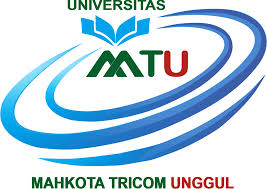The Relations of Economic-Political Power to the Development of Digital Economy in Asia
DOI:
https://doi.org/10.55927/ministal.v2i2.3858Keywords:
Asia, Digital Economy, Economic Power, Political PowerAbstract
The relationship between the two is intricate, and this includes how it affects the development of the digital economy. The expansion of the digital economy is performing well throughout Asia. However, very few people have examined it from the viewpoint of political economy. This study focuses on examining the political-economic interactions that take place as Asia's digital economy grows. With library research, the research method takes a descriptive qualitative approach. Political economy analysis was used to conduct the analysis, and it was found that while other Asian nations lack political strength, some of them can to create ecosystems and maintain control of their national digital economies. Therefore, depending on the current political and economic forces, there are differences in several of nations.
Downloads
References
Ali, M. A., Hoque, M. R., & Alam, K. (2018). An empirical investigation of the relationship between e-government development and the digital economy: the case of Asian countries. Journal of Knowledge Management, 22(5), 1176–1200. https://doi.org/10.1108/JKM-10-2017-0477
Altair, B. (2020). China Digital As Counterweight Asia-Pacific Century. Jurnal Asia Pacific Studies, 4(1), 72–85. https://doi.org/10.33541/japs.v4i1.1556
Anukoonwattaka, W., Romao, P., Bhogal, P., Bentze, T., Lobo, R. S., & Vaishnav, A. (2021). Digital Economy Integration in Asia and the Pacific: Insights from DigiSRII 1.0. Asia-Pacific Sustainable Development Journal, 28(2), 113–148.
Asean Development Bank. (2019). Understanding the Digital Economy: What Is It and How Can It Transform Asia? ASEAN-India Center (AIC) and Research and Information Systems for Developing Countries (RIS). https://www.adb.org/news/events/understanding-digital-economy-what-it-and-how-can-it-transform-asia
Barquin, S, Vinayak, H. V, & ... (2018). Asia’s digital banking race: Giving customers what they want. Global Banking …, April. https://responsiblefinanceforum.org/wp-content/uploads/2018/05/Asias-digital-banking-race-WEB-FINAL.pdf
Barquin, Sonia, Gantes, G. de, HV, V., & Shrikhande, D. (2019). Digital banking in Indonesia: Building loyalty and generating growth. McKinsey & Company, February, 6. https://www.mckinsey.com/industries/financial-services/our-insights/digital-banking-in-indonesia-building-loyalty-and-generating-growth
bbc. (2020, October 26). Facebook, Google and Microsoft “avoiding $3bn in tax in poorer nations.” BBC. https://www.bbc.com/news/business-54691572
Chakravorti, B., Bhalla, A., & Chaturvedi, R. S. (2018). Which Economies Showed the Most Digital Progress in 2020? (No. 1; 1). https://hbr.org/2020/12/which-economies-showed-the-most-digital-progress-in-2020
Chung, V. (2019). The ecosystem effect on financial services in China. McKinsey & Company. https://www.mckinsey.com/featured-insights/future-of-asia/videos/the-ecosystem-effect-on-financial-services-in-china
Delteil, B., Le, A., & Miller, M. (2020). Six golden rules for ecosystem players to win in Vietnam. McKinsey & Company, November, 1–9. https://www.mckinsey.com/vn/our-insights/six-golden-rules-for-ecosystem-players-to-win-in-vietnam
Drezner, D. (2021). Power and International Relations: a temporal view. European Journal of International Relations, 27(1), 29–52. https://doi.org/10.1177/1354066120969800
Feng, J. (2018). Poised to become digital-first economies, ASEAN countries still face core challenges. IMF. https://www.imf.org/en/Publications/fandd/issues/2018/09/asean-digital-economy-infographic-feng
Fourcade, M., & Kluttz, D. N. (2020). A Maussian bargain: accumulation by gift in the digital economy. Big Data & Soc, 7(1), 1–16.
Goldstein J, P. J. (2016). International Relations. Pearson Longman.
Hoontrakul, P. (2018). Asia’s Digital Economy. In Economic Transformation and Business Opportunities in Asia (pp. 269–312). Springer International Publishing. https://doi.org/10.1007/978-3-319-58928-2_8
Jun, S., Park, J., & Kim, J. Y. (2022). Digital Transformation Landscape in Asia and the Pacific: Aggravated Digital Divide and Widening Growth Gap. 1–69. http://www.unescap.org/kp
Li, K., Kim, D. J., Lang, K. R., Kauffman, R. J., & Naldi, M. (2020). How should we understand the digital economy in Asia? Critical assessment and research agenda. Electronic Commerce Research and Applications, 44(January), 101004. https://doi.org/10.1016/j.elerap.2020.101004
Liu, L. (2022). Impact of Economic Globalization on International Relations under the Background of Wireless Communication and Artificial Intelligence. Wireless Communications and Mobile Computing, 2022, 1–6. https://doi.org/10.1155/2022/6849387
Miller, G. J. (1997). The Impact of Economics on Contemporary Political Science. Journal of Economic Literature, 35(3), 1173–1204. http://www.jstor.org/stable/2729975
Minh, L. T. (2021). Digital ecosystems the new game-changer in Southeast Asia. Vietnam Investment Review. https://vir.com.vn/digital-ecosystems-the-new-game-changer-in-southeast-asia-86589.html
Mohdari, M. M. (2022, January). How the world’s largest FTA will impact Southeast Asia’s digital economy. Tech For Good Institute. https://techforgoodinstitute.org/blog/articles/rcep-worlds-largest-fta-southeast-asias-digital-economy/
Nasution, D. S., Ec, M., Aminy, M. M., & Ramadani, L. A. (2019). Ekonomi Digital. Fakultas Ekonomi dan Bisnis Islam, Universitas Islam Negeri Mataram.
Negara, S. D., & Sugiana, A. M. (2022). The State of Indonesia’s Digital Economy in 2022. ISEAS Perspective, 109(2022), 1–14.
OECD Southeast Asia Regional Forum. (2017). Opportunities and Policy Challenges of Digitalisation in Southeast Asia. Oecd, August, 26. https://www.oecd.org/southeast-asia/events/regional-forum/Forum_Note_Digital_Transformation_STI.pdf
Oxfam. (2014). How Politics and Economics Intersect.
Sayeh, A. M., Dabla-Norris, E., & Kinda, T. (2023). Asia’s Productivity Needs a Boost That Digitalization Can Provide. IMF. https://www.imf.org/en/Blogs/Articles/2023/01/09/asias-productivity-needs-a-boost-that-digitalization-can-provide
Sedik, T. S. (2018). Asia’s Digital Revolution. IMF. https://www.imf.org/en/Publications/fandd/issues/2018/09/asia-digital-revolution-sedik
Tonby, O., Woetzel, J., Kaka, N., Choi, W., Swaminathan, A., Seong, J., Carson, B., & Ma, L. (2020). The future of Asia: How Asia can boost growth through technological leapfrogging. McKinsey Global Institute, 3(3), 301–307. https://doi.org/10.1007/s10308-005-0024-4
Tony Blair. (2022, April). Digital Government in South-East Asia: Greater Collaboration Needed to Reach Regional Integration. TONY BLAIR INSTITUTE FOR GLOBAL CHANGE. https://www.institute.global/insights/tech-and-digitalisation/digital-government-south-east-asia-greater-collaboration-needed-reach-regional-integration
WeForum. (2017). Bringing half of the global population online. World Economic Forum. https://www.weforum.org/impact/creating-hundreds-of-millions-of-new-internet-users/
Downloads
Published
How to Cite
Issue
Section
License
Copyright (c) 2023 Halifa Haqqi, Andika Drajat Murdani

This work is licensed under a Creative Commons Attribution 4.0 International License.










.png)



















